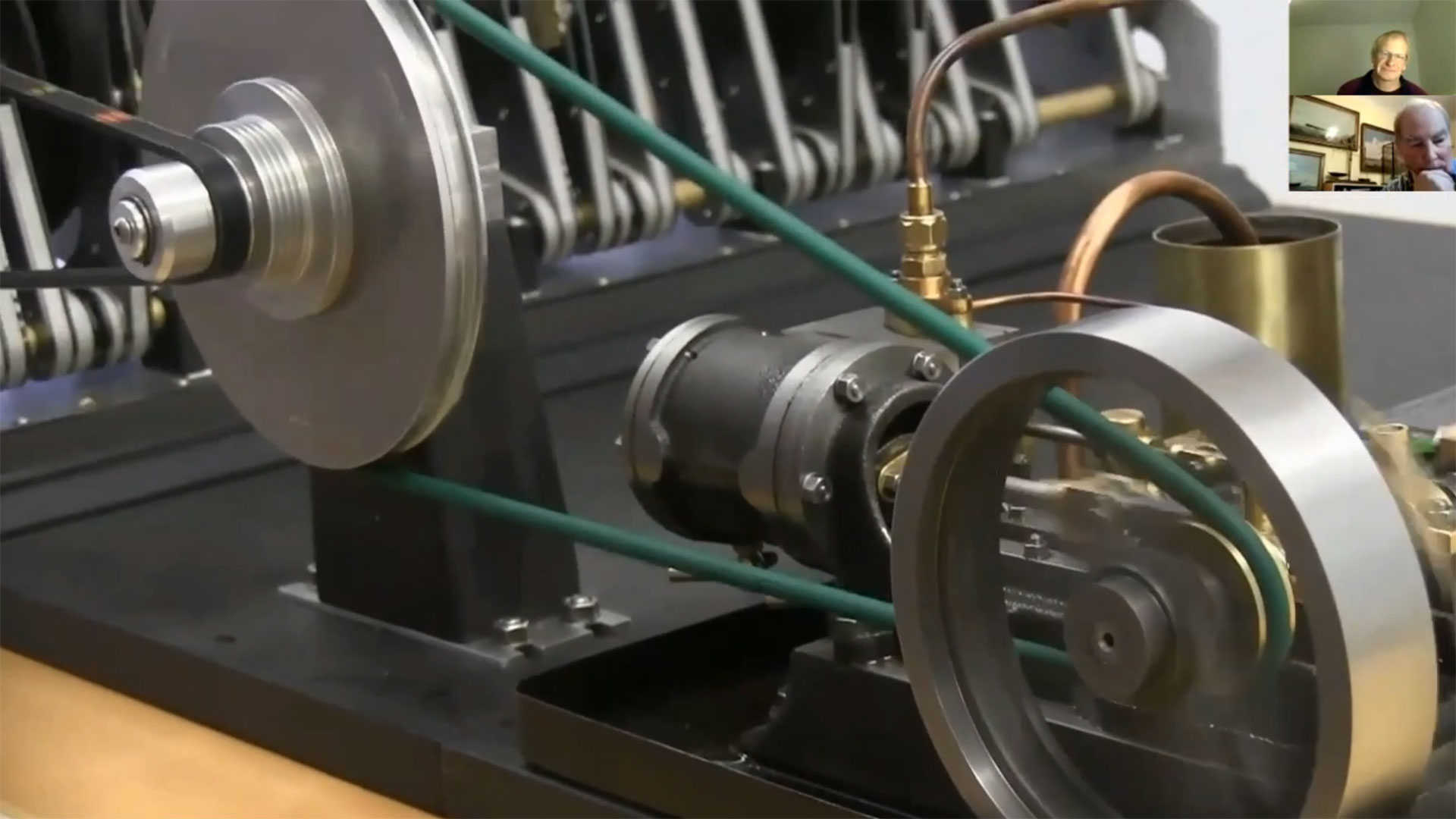The Wealden Iron Industry
Presenter: Dr Tim Smith
Dr Tim Smith of the Wealden Iron Research Group gave the first “Newcomen Shed Lecture” in September 2020.
During the middle ages, Britain’s iron industry was clustered around the Weald of southern England stretching from Kent to Surrey. Tim examined the technology and businesses behind the Wealden iron industry – an account enlivened by experiments to replicate furnace practices using local ore and charcoal and miniature furnaces. A beautifully illustrated tour-de-force.
TOPS British Rail’s nationwide computer system for freight | From Cold War to Coal Trains
Presenter: Dr. Jonathan Aylen
Dr Jonathan Aylen reported on his research with Bob Gwynne on British Rail’s “Total Operations Processing System” that managed all British Rail freight movements by centralised computer from 1975 onwards. This pioneering nationwide system was adopted from Southern Pacific in the USA but included many innovations in telecommunications and management organisation.
This lecture in October 2020 was one for both the train enthusiasts and the computer geeks. Who knew that British Rail was a computer pioneer? Also see Using TOPS – plenty of Portakabin buildings, Ventek terminals and cheesy music.
Charles Babbage and the Abstraction of Mechanism
Presenter: Prof. Adrian Johnstone
Professor Adrian Johnstone, Professor of Computing at Royal Holloway, University of London not only gave us a compelling introduction to Babbage’s difference engines, but also his system of hardware abstractions which he called his Notation. The ideas allowed him to reason in the abstract about chains of cause and effect in his mechanisms. Babbage believed the Notation to be his crowning achievement and he anticipated Hardware description languages by a century. A remarkable and visually stunning lecture.
The steam powered difference engine from Professor Adrian Johnstone’s lecture built by Dr Piers Plummer can also be seen on YouTube under Computing by Steam
The Famous ‘Flying Scotsman’ – Marketing Circumstance and Chance
Presenter: Bob Gwynn
Bob Gwynne’s beautifully illustrated and entertaining account of the Flying Scotsman – arguably the world’s most famous locomotive and a brand in its own right. This popular lecture in December 2020 unpicked the chance factors and conscious marketing that made the locomotive such an icon. The brand started life as the name of a train, not the locomotive that hauled it. The named train was an attempt by LNER to promote the company while covering up its lack of investment elsewhere.
For those who want more, go to BBC i-player – 4472 The Flying Scotsman which was first shown on BBC2 on the evening of 11th August 1968 – the day of the last steam train on British Rail – with great helicopter shots, Pegler’s piercing blue eyes and an excellent script. Look for incidentals: there were still three water troughs on the journey north for steam heat boilers on diesels – one is shown 24 minutes in. It’s hard to remember that almost everyone smoked in those days and the terraced houses in the North-East all had open fires! Also, for TOPS enthusiast there’s a glimpse of the goods yard at Doncaster.
Bob Gwynne’s own book on The Flying Scotsman is available on the web.
Are you a member of the Newcomen Society?
Having just celebrated its Centenary Year, the society has published over a 1000 papers in The Journal – an invaluable archive of original research material published twice a year, covering all aspects of engineering from ancient times to the present, plus available to browse and download in our FREE TO MEMBERS Archive.
Full Membership includes:
- Journal for the History of Engineering & Technology (two issues, one volume per year)
- Printed and/or PDF versions of LINKS, Newcomens’ newsletter (published 4 times a year)
- Free access and download facilities to the Society’s Archive of past papers back to 1920 (The Journal)
- Membership of local branches and subject groups
- Access to the website’s Member Area offering access to research sources & access to other members (subject to privacy permissions)
- Attendance at summer meetings, conferences, lectures and study days.

